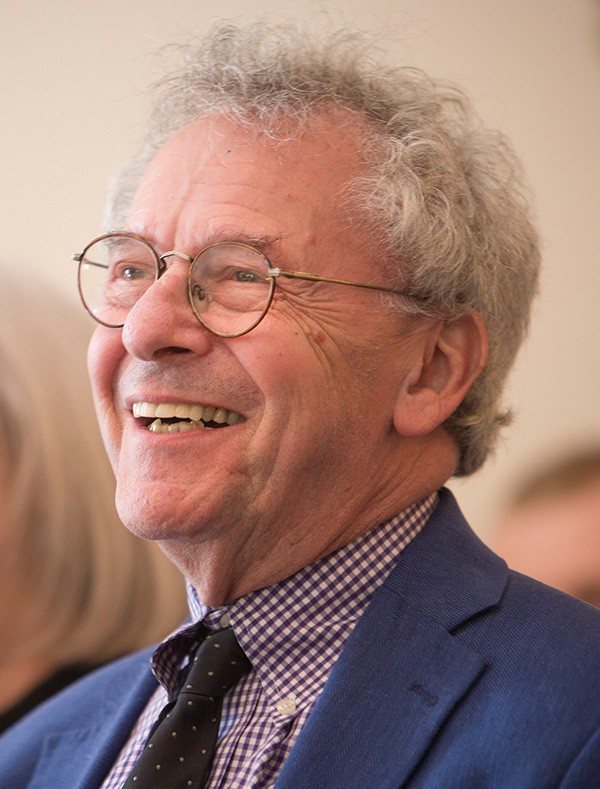Scholarship honors eminent historian and professor
By Kathy Hovis
A new scholarship for first-generation undergraduate students has been established in the name of beloved government professor Isaac Kramnick. With contributions from his family, former students and colleagues, the endowment will support students beginning this fall.
Kramnick, who came to Cornell in 1972, died in December 2019. He was associate dean of the College of Arts and Sciences from 1986-89; chair of the Department of Government from 1996 to 2001; a faculty member of the Cornell Board of Trustees from 1990-94; and served as the university’s first vice provost for undergraduate education from 2001-05.
Along with his numerous scholarly publications, he was instrumental in founding the Faculty Fellows and Faculty-in-Residence programs and the West Campus House system. He also co-chaired the committee organizing the celebration of the sesquicentennial of Cornell’s charter in 2015, and conceived the Sesquicentennial Commemorative Grove on Libe Slope.
“Isaac would have been so proud to have his name connected to this mission,” said Miriam Brody, Kramnick’s wife, a writer and, for many years, a professor at Ithaca College. “He was himself a first-generation college student who worked in college cafeterias to supplement his scholarship. He remembered that Eleanor Roosevelt once addressed him with the magical words ‘Where is the mayonnaise?’
“He was nurtured and tutored by faculty who recognized who he might become and were his models of inspiring teaching and scholarship,” Brody said. “No surprise that he brought to his teaching a passion and commitment to passing on a history of ideas. He grew to love Cornell and it is gratifying to his family that that love is being returned by his friends and students.”
A foster child, Kramnick was raised by an Orthodox Jewish farming family in rural Millis, Massachusetts. He was a first-generation and scholarship undergraduate at Harvard University in the mid-1950s and graduated summa cum laude in 1959, continuing his studies at Cambridge University and Harvard and teaching at Harvard, Brandeis and Yale universities before coming to Cornell.
Glenn Altschuler, Ph.D. ‘76, the Thomas and Dorothy Litwin Professor of American Studies, Kramnick’s best friend, and a contributor to the endowment, said it is the “ideal way to honor an iconic scholar, teacher, university citizen and human being.” Altschuler and Kramnick co-authored “The 100 Most Notable Cornellians” and “Cornell: A History, 1940–2015.”
“Isaac would be moved to know that this endowment is one of the most democratic at Cornell in terms of the number of contributors,” Altschuler said.
Other faculty who contributed to the endowment emphasized Kramnick’s dedication to students.
“From his championing of the undergraduate housing units to his work with students of color during the summer, Isaac was always modeling how we should value one another and the many ways that scholarship, and just plain human decency, ennoble us all,” said Kenneth McClane, the W.E.B. Du Bois Professor of Literature Emeritus in the Department of Literatures in English. “That Miriam and others wish to create this scholarship for first-generation students is pure Isaac: Each of us is sacred and interconnected.”
Cornell alumni were also generous with gifts to the scholarship fund.
“Professor Kramnick was the consummate university professor,” said Casey Morse Klurfeld ’00. “Larger than life in the lecture hall, but always approachable and interested in what his students were thinking and had to say. His love of learning — and for Cornell — were palpable and infectious to those around him.”
Catherine Simpson Bueker ’96, who is now a sociology professor, said she often channels Kramnick not in the classroom, but when speaking with her children.
“He talked about rights and responsibilities in a democracy and what it means for me to have freedom and for you to have freedom,” she said. “I will never forget his words, ‘my rights extend from the tip of my nose to the tip of your nose.’ That phrase is so fundamental to our existence as a civil society.”
Franci Blassberg ’75, J.D. ’77, didn’t take a class with Kramnick as an undergrad, but audited his classes when she came to Cornell to teach at the law school. “There are no words to express my admiration for his intellect, humanity and love for Cornell,” she said.
Nancy Meinig ’62, who along with her late husband, former Cornell Board of Trustees chair Peter Meinig ‘61, has been an active university leader and benefactor, got to know Kramnick quite well when they worked together on a sesquicentennial planning committee. “Isaac was brilliant, impressive, very approachable and became a good friend. He was an iconic Cornell professor.”
Contributor Henry Louis Gates Jr. took a class with Kramnick at Yale.
“(Kramnick) was an enormous influence on my education at Yale. Just about everyone on campus took his course on ‘Revolutions and Revolutionary Thought’ in the chaotic 1969-1970 school year, which culminated in the famous May Day strike over the treatment of Bobby Seale and the Black Panthers, and Nixon and Kissinger’s invasion of Cambodia,” said Gates, the Alphonse Fletcher University Professor at Harvard and the host of “Finding Your Roots” on PBS. “But even during the strike, we continued to attend his amazing lectures. He made political science come alive with his brilliant command of storytelling and taught me so much.”
Gifts are still being accepted. To contribute to the Isaac Kramnick First-Generation Memorial Fund, visit this link.
Kathy Hovis is a writer for the College of Arts and Sciences.
Media Contact
Get Cornell news delivered right to your inbox.
Subscribe

